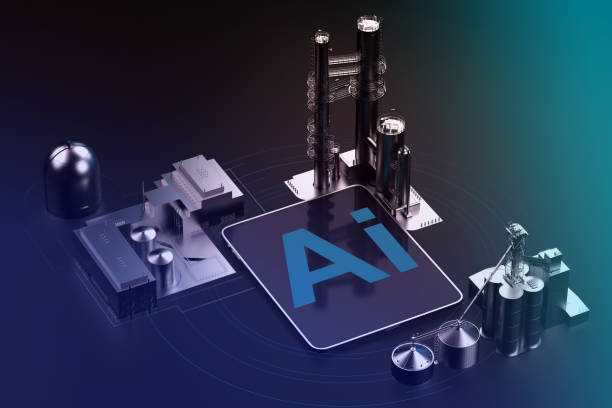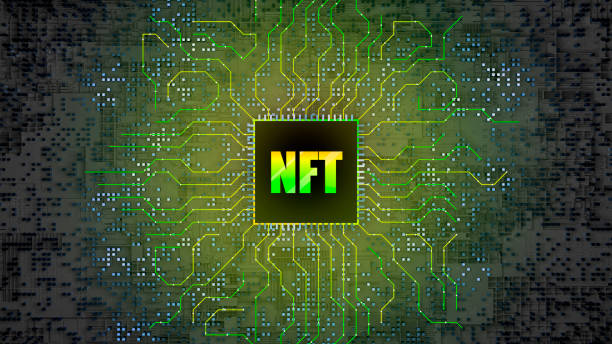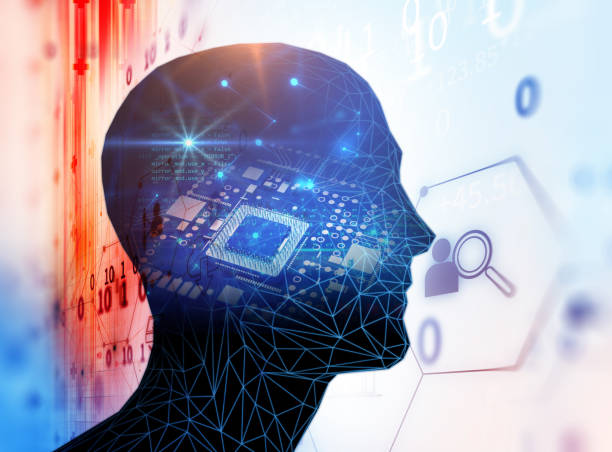What is an AI Assistant and What are its Applications?

An #AI Assistant (Artificial Intelligence Assistant) is a software or program that uses Artificial Intelligence techniques to perform various tasks automatically or help the user perform them.
These tasks can include answering questions, managing time, scheduling, content creation, translation, and many other things.
Types of AI Assistants
AI assistants come in various forms, including voice assistants (such as Google Assistant and Siri), text assistants (such as ChatGPT), and virtual assistants offered in various environments (such as websites and applications).
Applications of AI Assistants
The applications of AI assistants are vast and span across various fields, including:
- Personal Productivity Helping with time management, appointment reminders, and task organization.
- Customer Service Answering frequently asked questions, providing support, and guidance.
- Marketing and Sales Content creation, data analysis, and providing personalized recommendations.
- Education Providing interactive training, answering questions, and grading assignments.
- Healthcare Assisting in diagnosing diseases, providing medical advice, and managing patient records.
Benefits of Using an AI Assistant
Using an AI assistant can offer many benefits, including:
- Increased Productivity By automating tasks and providing fast, accurate information.
- Reduced Costs By decreasing the need for human labor.
- Improved Customer Experience By providing fast, personalized, and 24/7 available services.
- Easy Access to Information With the ability to quickly search for and retrieve needed information.
Are you disappointed with the low conversion rate of your online store?
Rasaweb offers the definitive solution with professional e-commerce website design!
✅ Increase your sales and revenue
✅ Unparalleled user experience for your customers
⚡ Get a free consultation now!
Comparison of AI Assistants Available in the Market

Choosing a suitable AI assistant requires careful consideration and comparison of the various options available in the market.
Each of these assistants has its own unique features, advantages, and disadvantages.
In this section, we will compare some of the most popular and widely used AI assistants:
Google Assistant:
This voice assistant, developed by Google, is available on a wide range of devices (such as smartphones, speakers, and televisions).
Google Assistant is very popular due to its powerful search capabilities, integration with other Google services, and support for various languages.
Siri:
Apple’s voice assistant that is pre-installed on iOS and macOS devices.
Siri is popular among users due to its simple user interface, high security, and integration with the Apple ecosystem.
Amazon Alexa:
Amazon’s voice assistant that is primarily focused on Echo smart speakers.
Alexa is very popular due to its smart home capabilities, ability to control various devices, and access to a wide range of skills.
ChatGPT:
A large language model developed by OpenAI.
This #AI assistant is capable of generating text, translating languages, writing various kinds of creative content, and answering your questions in an informative way.
Comparison Based on Features:
For a more detailed comparison, the various features of these assistants can be summarized in the table below:
How to Choose the Right AI Assistant for Your Needs

Choosing the right AI assistant is a decision that should be made considering your specific needs and priorities.
Various factors are involved in this selection, which we will examine in this section:
Identifying Needs:
First and foremost, you need to accurately determine what you expect from an AI assistant.
Are you looking for a voice assistant to control your smart devices? Or a text assistant for content creation and answering questions?
Checking Capabilities:
After determining your needs, you should check the various capabilities of the available assistants.
Does the assistant support the Persian language? Is it compatible with your other devices and services?
Considering Price:
Some AI assistants are offered for free, while others require a subscription fee.
Before choosing, you should check the price and subscription terms.
Reading User Reviews:
Reading reviews and experiences from other users can help you choose a suitable AI assistant.
Look for reviews that are specifically relevant to your needs and priorities.
Testing Before Buying:
Many AI assistants offer a trial period.
Before buying, take advantage of this opportunity and fully test the desired assistant.
| Feature | Google Assistant | Siri | Amazon Alexa | ChatGPT |
|---|---|---|---|---|
| Persian Language Support | Yes | Yes | No | Yes |
| Device Compatibility | Extensive | Limited to Apple Devices | Echo Speakers and Other Smart Devices | Via Web and API |
| Price | Free | Free | Free (Speaker Purchase Required) | Free and Subscription-Based |
| Special Capabilities | Powerful Search, Google Services Integration | Simple User Interface, High Security | Smart Device Control, Skills | Text Generation, Language Translation |
How to Activate and Configure an AI Assistant

After choosing the right AI assistant, it’s time to activate and configure it.
The activation and configuration process varies depending on the type of assistant.
In this section, we will examine how to activate and configure a few popular assistants:
Google Assistant:
To activate Google Assistant, you must first install the Google Assistant application on your smartphone.
Then, sign in to your Google account and follow the on-screen instructions.
In the settings, you can configure the language, voice, and other settings.
Siri:
Siri is enabled by default on iOS and macOS devices.
To configure Siri, go to your device’s settings and select Siri & Search.
In this section, you can change settings such as language, voice, and how to activate Siri.
Amazon Alexa:
To activate Alexa, you need to purchase an Echo smart speaker and install the Alexa application on your smartphone.
Then, sign in to your Amazon account and follow the on-screen instructions.
In the Alexa application, you can connect your smart devices to Alexa and add new skills.
ChatGPT:
To use ChatGPT, visit the OpenAI website and create an account.
After creating an account, you can use ChatGPT online.
OpenAI also provides APIs that allow you to integrate ChatGPT into your applications.
Is your company website as professional and reliable as it should be? With Rasaweb’s specialized corporate website design, create an online presence that reflects your credibility and attracts more customers.
✅ Build a powerful and professional image of your brand
✅ Convert visitors into real customers
⚡ Get a free consultation now!
Best Practices for Using an AI Assistant

To fully benefit from the capabilities of an AI assistant, you should be familiar with the best practices for using it.
In this section, we provide a few useful tips and tricks for optimal use of an AI assistant:
Use Clear Voice Commands:
For your voice assistant to correctly understand your commands, you should use clear and concise voice commands.
Avoid speaking too quickly or using incomprehensible words.
Personalize Settings:
Most AI assistants allow for personalization of settings.
By changing the settings, you can adjust your assistant to best suit your needs.
Use Shortcuts:
Many AI assistants support shortcuts.
Using shortcuts, you can perform tasks faster and easier.
Familiarize Yourself with New Features:
AI assistants are constantly being developed and improved.
By familiarizing yourself with new features, you can take advantage of their latest capabilities.
Maintain Privacy:
When using an AI assistant, be mindful of your privacy.
Avoid sharing sensitive information with your assistant and carefully review privacy settings.
Privacy and Security in Using AI Assistants

Privacy and security are two important issues in using #AI assistants.
Since these assistants have access to your personal information, you should take the necessary measures to protect this information.
In this section, we will examine the privacy and security challenges in using AI assistants and provide solutions to address them:
Data Collection:
AI assistants collect various information from you, including personal information, search history, location, and information about your smart devices.
This information may be used to improve the assistant’s performance, provide personalized services, and targeted advertising.
Data Storage:
The information collected by AI assistants may be stored for a long period.
This information may be stored on the servers of the assistant’s manufacturers and may be shared with third parties.
Data Security:
The information stored by AI assistants may be at risk of hacking and data breaches.
If this happens, your personal information may be accessed by unauthorized individuals.
Privacy Protection Solutions:
To protect your privacy when using AI assistants, you can take the following measures:
- Carefully review privacy settings and disable features you do not need.
- Use a strong password and change it periodically.
- Avoid sharing sensitive information with your assistant.
- Periodically review your activity history and delete information you do not want to be stored.
- Use AI assistants that use strong security protocols.
The Future of AI Assistants and Their Impact on Our Lives

The future of AI assistants is very bright and full of opportunity.
With the ever-increasing advancement of technology, these assistants are becoming smarter, more efficient, and more versatile every day.
In this section, we will examine the future trends of AI assistants and their impact on our lives:
Becoming Smarter:
Using more advanced machine learning and natural language processing algorithms, AI assistants will be able to understand more complex commands, provide more accurate responses, and perform more difficult tasks.
Greater Personalization:
AI assistants will be able to provide completely personalized services and offers based on your personal information and activity history.
Integration with the Physical World:
AI assistants will increasingly integrate with smart devices and objects in the physical world.
This will allow you to control your surroundings using your voice.
Impact on Jobs:
AI assistants will gradually replace some jobs.
Jobs that require repetitive and routine tasks are more at risk of being replaced by these assistants.
Impact on Education:
AI assistants can act as a private tutor, helping students learn concepts and solve problems.
These assistants can automatically grade assignments and provide feedback.
| Feature | Today’s Performance | Future Prediction |
|---|---|---|
| Intelligence | Limited Command Understanding | Full Understanding of Complex Commands |
| Personalization | Limited Personalization | Full Personalization Based on Personal Information |
| Integration with the Physical World | Limited Integration with Smart Devices | Full Integration with the Surroundings |
| Impact on Jobs | Limited Job Replacement | Extensive Replacement of Routine Jobs |
Challenges and Limitations of AI Assistants

Despite all the advantages and potentials of #AI assistants, this technology also faces challenges and limitations.
In this section, we will examine some of the most important challenges and limitations of AI assistants:
Limited Understanding:
AI assistants still have limitations in understanding natural language and complex commands.
These assistants may have difficulty recognizing tone, irony, and emotions.
Algorithmic Biases:
The algorithms used in AI assistants may be biased.
These biases can lead to unfair or discriminatory responses.
Privacy:
The collection and storage of personal information by AI assistants raises concerns about privacy.
Appropriate security measures need to be taken to protect this information.
Security:
AI assistants may be at risk of hacking and cyber attacks.
If an AI assistant is hacked, users’ personal information may be accessed by unauthorized individuals.
Dependency:
Excessive use of AI assistants may lead to dependence and decreased cognitive skills.
Are you worried about losing customers who don’t have a professional online store?
Forget these worries with an e-commerce website design by Rasaweb!
✅ Significant increase in sales and visitor-to-customer conversion rate
✅ Professional and user-friendly design that gains customer trust
⚡ Get a free consultation from Rasaweb
Key Tips for Choosing and Using an AI Assistant Safely

Choosing and using an AI assistant safely requires attention to key points.
By following these tips, you can benefit from the advantages of this technology while protecting your privacy and security.
In this section, we provide a few key tips for choosing and using an AI assistant safely:
Research and Review:
Before choosing an AI assistant, research and review thoroughly.
Read user reviews, ratings, and comparisons to choose the best option for your needs.
Review Privacy Settings:
Before using an AI assistant, carefully review the privacy settings.
Disable the features you do not need and make sure your personal information is properly protected.
Use a Strong Password:
Use a strong and unique password for your account.
Avoid using the same password for different accounts.
Be Careful About the Information You Share:
When using an AI assistant, be careful about the information you share.
Avoid sharing sensitive and personal information.
Regular Updates:
Update your AI assistant regularly.
Updates usually include security patches that can protect your device from cyber attacks.
Responsible Use:
Use the AI assistant responsibly.
Avoid using it for illegal or unethical purposes.
Frequently Asked Questions About AI Assistants

In this section, we answer some frequently asked questions about #AI assistants:
How Does an AI Assistant Work?
AI assistants use machine learning and natural language processing algorithms to understand and respond to your commands.
These assistants collect information from various sources and use their knowledge to provide the best answer.
Is an AI Assistant Safe?
The safety of an AI assistant depends on various factors, including the manufacturer, privacy settings, and how you use it.
By following safety tips, you can reduce the risk of hacking and data breaches.
Will an AI Assistant Replace Humans?
Currently, AI assistants cannot completely replace humans.
These assistants can perform repetitive and routine tasks, but still have limitations in performing creative and complex tasks.
How Can I Build an AI Assistant?
Building an AI assistant is complex and requires technical knowledge.
You can use various tools and platforms to build an AI assistant.
OpenAI and Google Cloud AI Platform are examples of these platforms.
Is it Free to Use AI Assistants?
Some AI assistants are offered for free, while others require a subscription fee.
Frequently Asked Questions
| Row | Question | Answer |
|---|---|---|
| 1 | What is an AI Assistant? | It is a software program that performs tasks or services for an individual based on verbal or written commands. |
| 2 | Name some examples of AI assistants? | Siri, Google Assistant, Alexa, and Cortana. |
| 3 | How do AI assistants work? | They use natural language processing (NLP), machine learning, and artificial intelligence to understand user input and provide responses or perform tasks. |
| 4 | What can an AI assistant do? | Answer questions, set reminders, play music, send messages, manage calendars, and control smart devices. |
| 5 | What are the benefits of using an AI assistant? | Increased productivity, quick access to information, assistance for individuals with specific disabilities, and simplifying daily tasks. |
| 6 | Are the responses of AI assistants always accurate? | No, they may sometimes make mistakes or provide outdated information, especially on complex or sensitive topics. |
| 7 | What are the privacy concerns regarding AI assistants? | Recording and storing voice/text data, the possibility of unauthorized access, and using data for advertising purposes. |
| 8 | What will the future of AI assistants be like? | Becoming smarter, greater integration with devices and platforms, a deeper understanding of emotions, and the ability to perform more complex tasks. |
| 9 | Do AI assistants learn from users? | Yes, through machine learning and data collection from previous interactions to improve performance and personalize responses. |
| 10 | What is the difference between an AI assistant and a chatbot? | An AI assistant has the ability to perform a wider variety of tasks beyond conversation and is often integrated with an operating system or hardware, while a chatbot is primarily designed for conversation or answering specific questions. |
And other services of Rasa Web Advertising Agency in the field of advertising
Intelligent Sales Automation: Professional optimization for online growth using user experience customization.
Intelligent Direct Marketing: An innovative service to increase the click-through rate through attractive user interface design.
Intelligent Marketplace: A fast and efficient solution to increase website visits with a focus on intelligent data analysis.
Intelligent Digital Branding: An effective tool for digital branding with the help of custom programming.
Intelligent Conversion Rate Optimization: An innovative service to increase online growth through a content strategy focused on SEO.
And over a hundred other services in the field of internet advertising, advertising consulting, and organizational solutions
Internet Advertising | Advertising Strategy | Advertorials
Sources
Comparison and Review of the Best Smart Voice Assistants
, Introduction to Google AI Assistant
, Digital Marketing Trends in 2024
, What is a Smart Assistant and How Does it Work?
? Are you looking for a digital transformation for your business? Rasaweb Afrin Digital Marketing Agency smooths your path to growth by offering services such as professional website design, SEO, and social media management. Trust us to make your online presence shine and take your business to the peak of success.
📍 Tehran, Mirdamad Street, next to Central Bank, South Kazerun Alley, Ramin Alley No. 6




